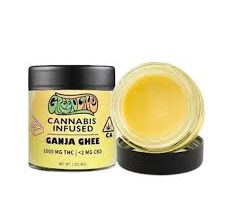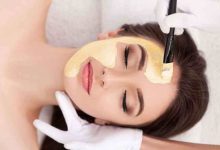🌿 Natural Sleep Remedies You Can Buy Without a Prescription

Table of Contents
ToggleSlaapmiddelen zonder recept Struggling to fall asleep? You’re not alone. Insomnia and sleep troubles affect over 30% of adults worldwide. While prescription medications can help, they often come with side effects and the risk of dependence. The good news? There are natural sleep remedies available without a prescription that are gentle, effective, and accessible.
This blog explores the top natural options that support restful sleep—without needing a visit to the doctor or pharmacy counter. We’ll also look at how to use them properly, what science says, and who should use caution.
🌙 Why Choose Natural Remedies?
Natural sleep aids are growing in popularity for good reason. People are increasingly looking for gentle, non-habit-forming alternatives to strong pharmaceuticals. These remedies often:
-
Have fewer side effects
-
Are non-addictive
-
Can support overall well-being, not just sleep
-
Work in harmony with the body’s rhythms
However, not all “natural” products are equally effective. It’s important to understand what works, what doesn’t, and what’s safe for your unique needs.
💤 1. Melatonin – Regulating Your Internal Clock
What It Is
Melatonin is a hormone your body naturally produces in the evening to signal that it’s time to sleep. Synthetic melatonin is available over the counter and is commonly used to reset circadian rhythms.
Best For:
-
Jet lag
-
Shift work
-
Delayed sleep phase (falling asleep too late)
How to Use:
-
Start with low doses: 0.3 to 1 mg 30–60 minutes before bedtime.
-
Avoid large doses (over 5 mg) unless directed by a doctor. More is not always better.
-
Avoid using melatonin daily for long periods unless recommended.
Pros:
✅ Generally safe, even for short-term use
✅ Useful for circadian-related sleep issues
✅ Widely studied
Cons:
❌ Doesn’t help much with staying asleep
❌ Quality control can vary—buy from trusted brands
❌ Can cause vivid dreams or morning grogginess
🌼 2. Valerian Root – A Gentle Herbal Sedative
What It Is
Valerian root is a traditional herbal remedy used for centuries to reduce anxiety and promote sleep. It appears to enhance GABA, a calming brain chemical.
Best For:
-
Trouble falling asleep
-
Mild anxiety or stress-related insomnia
How to Use:
-
Dosage: 300–600 mg about 1 hour before bed
-
Can be taken as capsules, tea, or tincture
-
Works better when taken consistently over 2–3 weeks
Pros:
✅ May improve sleep latency (how fast you fall asleep)
✅ Non-habit-forming
✅ Often combined with other herbs like hops or lemon balm
Cons:
❌ Can cause headaches or upset stomach in some people
❌ May take a few days to build effectiveness
❌ Shouldn’t be used with alcohol or sedatives
🍵 3. Chamomile – The Classic Calming Tea
What It Is
Chamomile is a flowering herb best known as a soothing tea. It’s commonly used for relaxation and sleep support.
Best For:
-
Evening relaxation
-
Mild insomnia
-
Stress or restlessness before bed
How to Use:
-
Drink 1 cup of chamomile tea 30–45 minutes before sleep
-
Can also be taken as extract or capsule
Pros:
✅ Widely available and very safe
✅ Gentle and calming
✅ Suitable for most people
Cons:
❌ Not very potent on its own for severe insomnia
❌ Possible allergic reactions for people sensitive to ragweed
🌿 4. Passionflower – Easing the Mind
What It Is
Passionflower is a vine with calming properties, often used to reduce anxiety and promote restful sleep.
Best For:
-
Racing thoughts
-
Stress-induced sleeplessness
-
Trouble relaxing before bed
How to Use:
-
Common forms: tea, tincture, capsule
-
Dosage: ~500 mg extract or 1–2 grams dried herb before bed
Pros:
✅ Soothes nervous system
✅ Often paired with valerian or lemon balm for added effect
✅ May improve overall sleep quality
Cons:
❌ Less researched than melatonin or valerian
❌ High doses may cause dizziness or confusion
🌸 5. Lavender – Aromatic Relaxation
What It Is
Lavender is a fragrant purple flower known for its calming aroma. It’s often used in aromatherapy and essential oils to support sleep and reduce anxiety.
Best For:
-
Creating a peaceful sleep environment
-
Stress-related sleep problems
-
Pairing with other sleep strategies
How to Use:
-
Add a few drops of lavender oil to a diffuser
-
Use lavender pillow sprays
-
Take a lavender-infused bath before bed
-
Available as capsules (e.g., 80 mg of Silexan)
Pros:
✅ Pleasant and soothing scent
✅ Scientifically shown to reduce heart rate and stress
✅ Easy to combine with other remedies
Cons:
❌ Effects are subtle—won’t “knock you out”
❌ Essential oils must be used properly (never ingest without guidance)
💪 6. Magnesium – The Sleep-Boosting Mineral
What It Is
Magnesium is an essential mineral that supports muscle relaxation, nerve function, and GABA regulation—all important for sleep.
Best For:
-
Trouble staying asleep
-
Muscle tension or restless legs
-
Anxiety-related insomnia
How to Use:
-
Dosage: 200–400 mg magnesium glycinate or citrate at night
-
Also available in topical forms (e.g., magnesium spray or Epsom salts)
Pros:
✅ Supports many sleep-related functions
✅ Calms the body and mind
✅ Generally safe for daily use
Cons:
❌ Too much can cause diarrhea
❌ Certain forms (like magnesium oxide) are poorly absorbed
🍃 7. L-Theanine – Focused Calm
What It Is
L-Theanine is an amino acid found in green tea. It promotes alpha brain waves and calm alertness, which may help with falling asleep.
Best For:
-
Trouble winding down
-
Anxiety
-
Pairing with melatonin or magnesium
How to Use:
-
Typical dose: 100–200 mg before bed
-
Works well with low-dose caffeine during the day (not at night)
Pros:
✅ Non-sedating but calming
✅ Supports better sleep quality
✅ Safe for regular use
Cons:
❌ Won’t cause drowsiness on its own
❌ Works best in combination with other aids
🧠 8. Glycine – The Body-Cooling Sleep Enhancer
What It Is
Glycine is an amino acid that lowers core body temperature and supports deeper sleep cycles.
Best For:
-
Hot sleepers
-
Trouble with sleep quality
-
Pairing with melatonin
How to Use:
-
Dose: 3 grams (3000 mg) about 1 hour before bed
-
Comes in powder or capsules
Pros:
✅ Safe and well-tolerated
✅ Can improve next-day alertness
✅ May help with sleep onset and REM sleep
Cons:
❌ Can cause mild digestive upset if overdosed
❌ More research still needed
⚠️ Who Should Use Caution?
While natural remedies are generally safer than pharmaceuticals, not everyone should use them without guidance. Be especially cautious if you:
-
Are pregnant or breastfeeding
-
Have chronic health conditions
-
Take prescription medications (due to potential interactions)
-
Are giving supplements to children or elderly adults
Always consult a healthcare provider before starting any new supplement—natural doesn’t mean risk-free.
🧘 Bonus: Lifestyle Tips That Work With Natural Remedies
-
Consistent Sleep Schedule: Go to bed and wake up at the same time every day—even weekends.
-
Tech-Free Evenings: Turn off screens 60 minutes before bed to reduce blue light exposure.
-
Cool, Dark, Quiet Room: Use blackout curtains, white noise, and keep room temp between 60–67°F (15–19°C).
-
Avoid Stimulants: Cut caffeine after 2 PM and alcohol before bed—it disrupts sleep cycles.
-
Relaxing Rituals: Try a warm bath, meditation, light stretching, or journaling before bed.
Pairing good sleep hygiene with the right natural support can significantly improve sleep quality.
✅ Summary Table of Natural Sleep Remedies
| Remedy | Best For | Form | Caution Notes |
|---|---|---|---|
| Melatonin | Jet lag, circadian issues | Capsules, tablets | Short-term use advised |
| Valerian | Sleep onset, mild anxiety | Capsules, teas | Can cause drowsiness/headache |
| Chamomile | Evening calm | Tea, extract | May cause allergies in |









